This is a public service announcement.
DO NOT THROW AWAY YOUR LEAVES. If you see someone throwing away theirs, rescue them.
I, like probably many of you in suburban America, spent countless fall days raking leaves into bags, then dragging them down our long driveway only for a truck to rumble by in the early morning and steal them away.
All that time and effort, and leaves, wasted.
You see, leaves grow out of the air, fed from our sun. When the short days and cool nights come in the fall, the tree pulls much of the energy from the leaves inside itself to prepare for a long winter sleep.
Trees are miners. Their roots spread wide and deep beneath the ground, far deeper than any annual vegetation can reach in a season. Mild acids at the tip of each root break apart the minerals in the rocky subsoil. These minerals are drawn up out of the ground, and many of them end up in the leaves, which are mostly carbon, the building block of life.
Part of the sun’s energy remains in the dead leaves that drop to the ground without a care in the world. They return to earth, fed back to the tree by the life of the soil.
When a tree drops its leaves in the fall, it’s raining down wisps of golden brown sun that feeds an unimaginably complex web of fungi and tiny creatures who turn these leaves into chocolate cake soil in which any vegetable would rejoice to grow in. And in which I am continually tempted to thrust my hands into, and shake my head in wonder.
I’ve moved many tons of leaves with a pitchfork, at all different stages of decomposition. Oak, maple, linden, locust, ash, hazel, walnut, elderberry, hawthorn, spruce, pine, beech. Some cook sweet, some more sour. Walnut leaves are citrus. Oak takes long to break apart, ash disappears. And when they’re mixed together and piled up, and the top is removed, it steams like soup. A look below reveals a thick broth of fungi, colonizing, breathing oxygen, like us. Some of the leaves that are brought by gardeners and neighbors to the farm are thrown in the compost run where our flock of chickens works it into black gold, devouring the thousands of worms that chew it to castings.
If you’ve got those big paper bags bought from the hardware store in your garage, that’s great. The actual best use of those bags is to lay them flat on the ground, rake as many leaves as you can get a hold of on top of them, and then walk all over it. Instant garden bed.
What, you might ask, could possibly grow in a pile of leaves? The most important plant any person or family could grow - potatoes. I would say that a person’s got a duty to oneself, his or her family, neighborhood, perhaps even nation, to grow potatoes.
Why? Potatoes happen to be the only food in the world, that if you were to eat them exclusively, you could not only survive, but maintain a fairly high level of health. Add a little butter or milk and you have a complete diet. Several generations of Irish, and most of Northern Europe, for that matter, can attest to this.
Beyond nutrition, potatoes are remarkable because they have the ability to grow just about anywhere, and in just about any substrate, even trashcans full of leaves.
We’ve experimented with different styles of growing them no-dig, meaning we don’t till or even break ground. Last year we ran a trial of dropping potatoes in lines on the grass of a meadow and then covering them with a shin-high layer of hay in one plot, leaves in the other. Both grew well, but the potatoes in the leaves far outcompeted those grown in the hay.
The best part of growing potatoes like this is that harvesting is done by hand, pulling back the leaves, or hay, and conducting our own little August Easter egg hunt.
Potatoes only grow upward from where they are planted, which is why they are mounded as they grow. In a large scale setting, this means that special instruments on a tractor plow the pathways and throw that soil at the base of the plants, forming trenches and mounds.
For us, it means that we cover the potato with a shin to knee-high layer of material and as the spuds grow through it, we just pile more leaves or hay on. All this organic material decomposes and feeds the soil life, which releases the nutrients to the plants.
I can’t think of a better way to start new garden beds then growing potatoes in leaves for a season. All the leaves, and the large foliage of the potato, keeps the weeds at bay. The following season, you are left with a fertile, weed free bed that is now ready to be planted out to any vegetable you’d like.
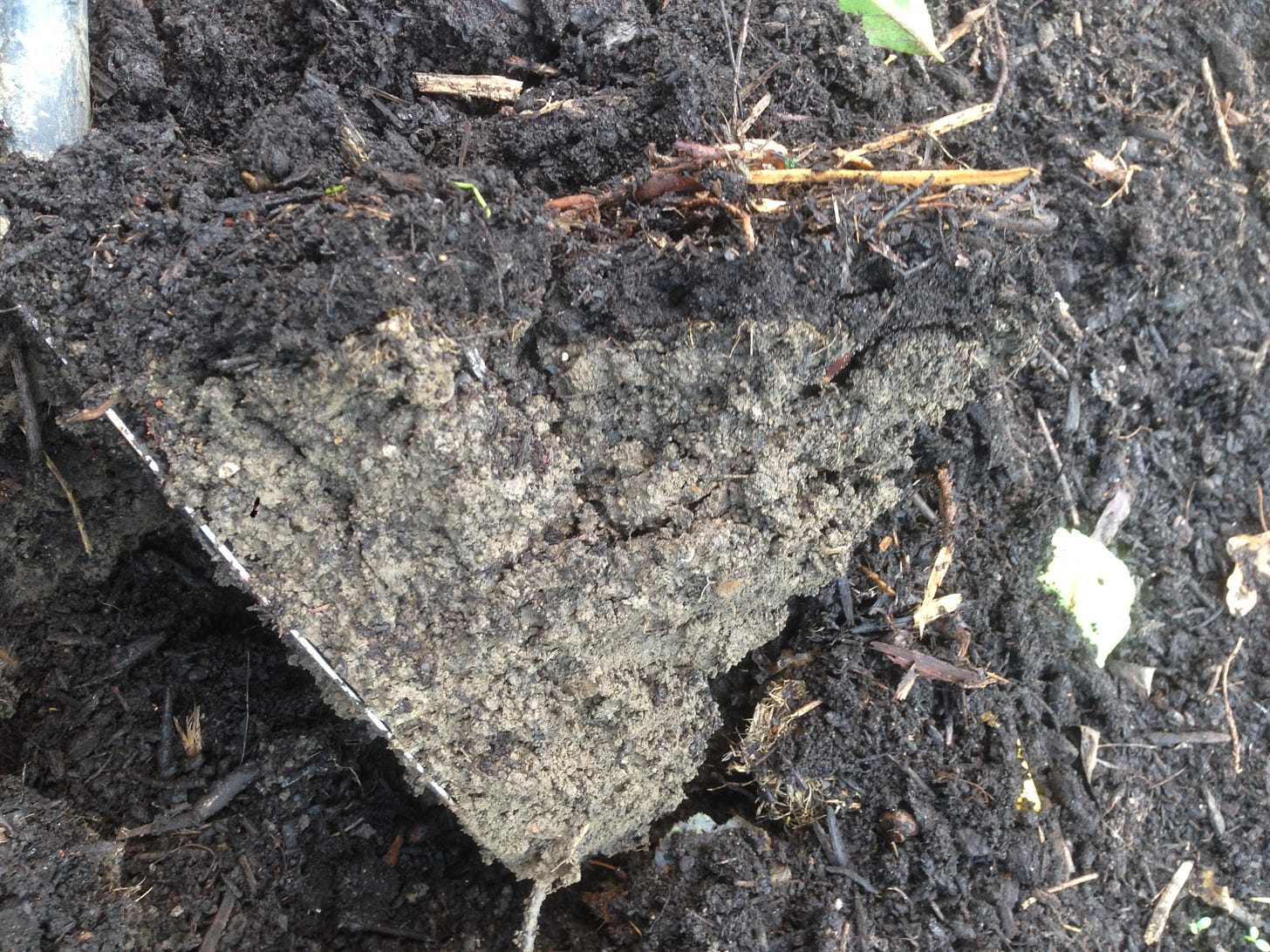
It’s too late (in the Northern Hemisphere) to plant potatoes this season, but it’s the perfect time to prepare your beds for next year. Anyone who would like to start a garden, I’d advise you to look at what day the ‘green waste’ trucks come in your neighborhood. Drive around the block the night before and liberate the piles of leaves that your neighbors were so kind as to do all the work of bagging up for you.
Dump them in a row, lay the bags on the ground (this keeps the grass and weeds down) and then rake the leaves on top of the bags. The more leaves, the better. They disappear very quickly in the spring. By midsummer, the pile will crumble into humus and will be full of worms and fungi.
For best results, walk on the beds to put all the leaves in contact with each other, and if it’s dry, give it a little water. This speeds up the decomposition. Come Spring Equinox in March, pull back the leaves in pockets and drop in a potato. By some miracle, it will grow. As it grows, pile on more leaves.
We grow a couple tons of potatoes every year by hand. It’s not “profitable” on the books. However, I consider potatoes the most valuable crop that we grow. There is real peace of mind in a well stocked woodshed and a couple of hundred pounds of potatoes in the cellar.
Many of Wendell Berry’s lines have stayed with me long after I read them, but there was one in particular from his essay In Distrust of Movements that I can assuredly say changed my life. After pointing out that we live in an age that thumbs its nose at superstition and prides itself in its rationality, Mr. Berry asks, “What could be more superstitious than the belief that money brings forth food?”
Money might not. But leaves do.
Leave the leaves. Plant the potato.




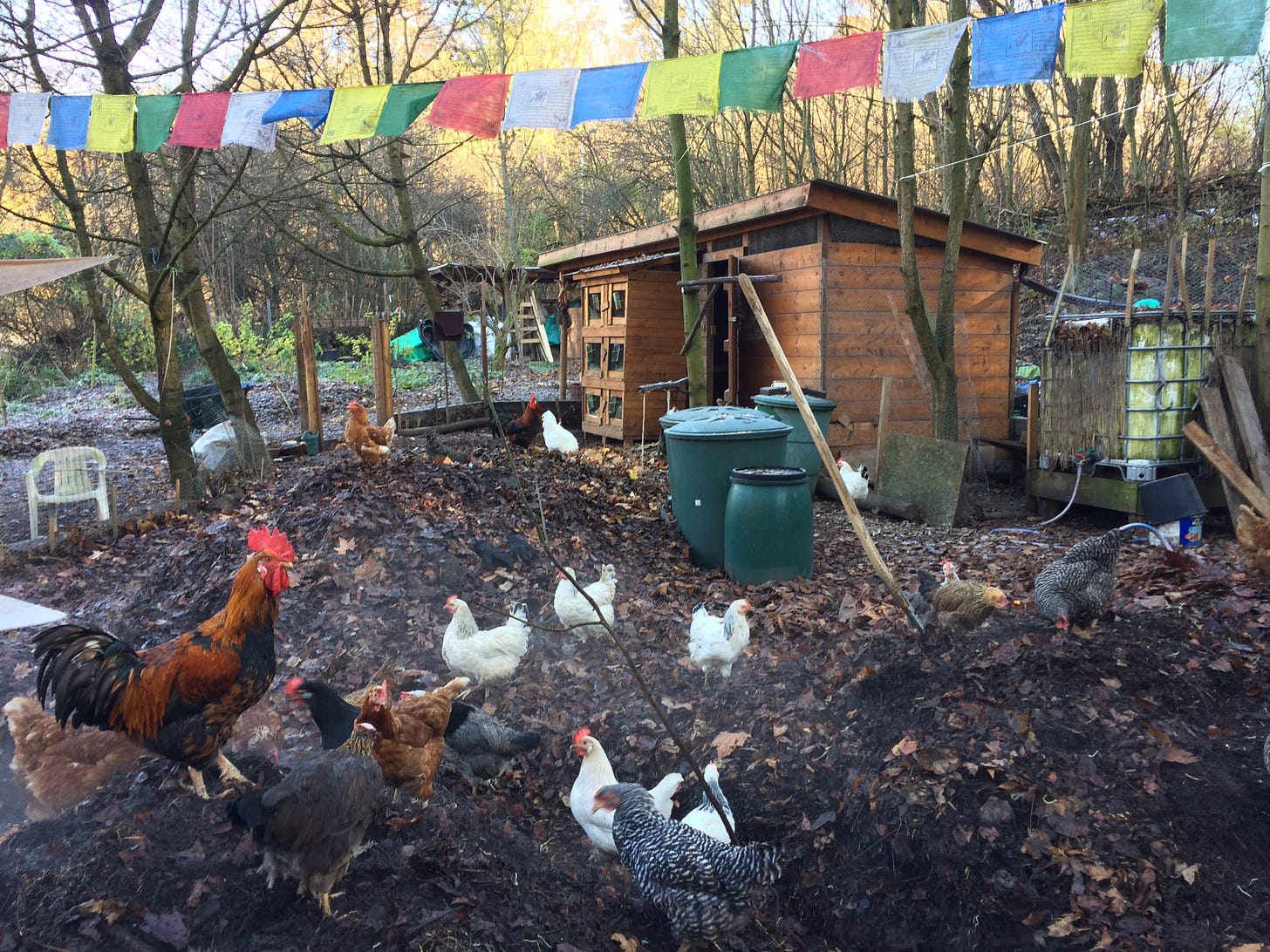
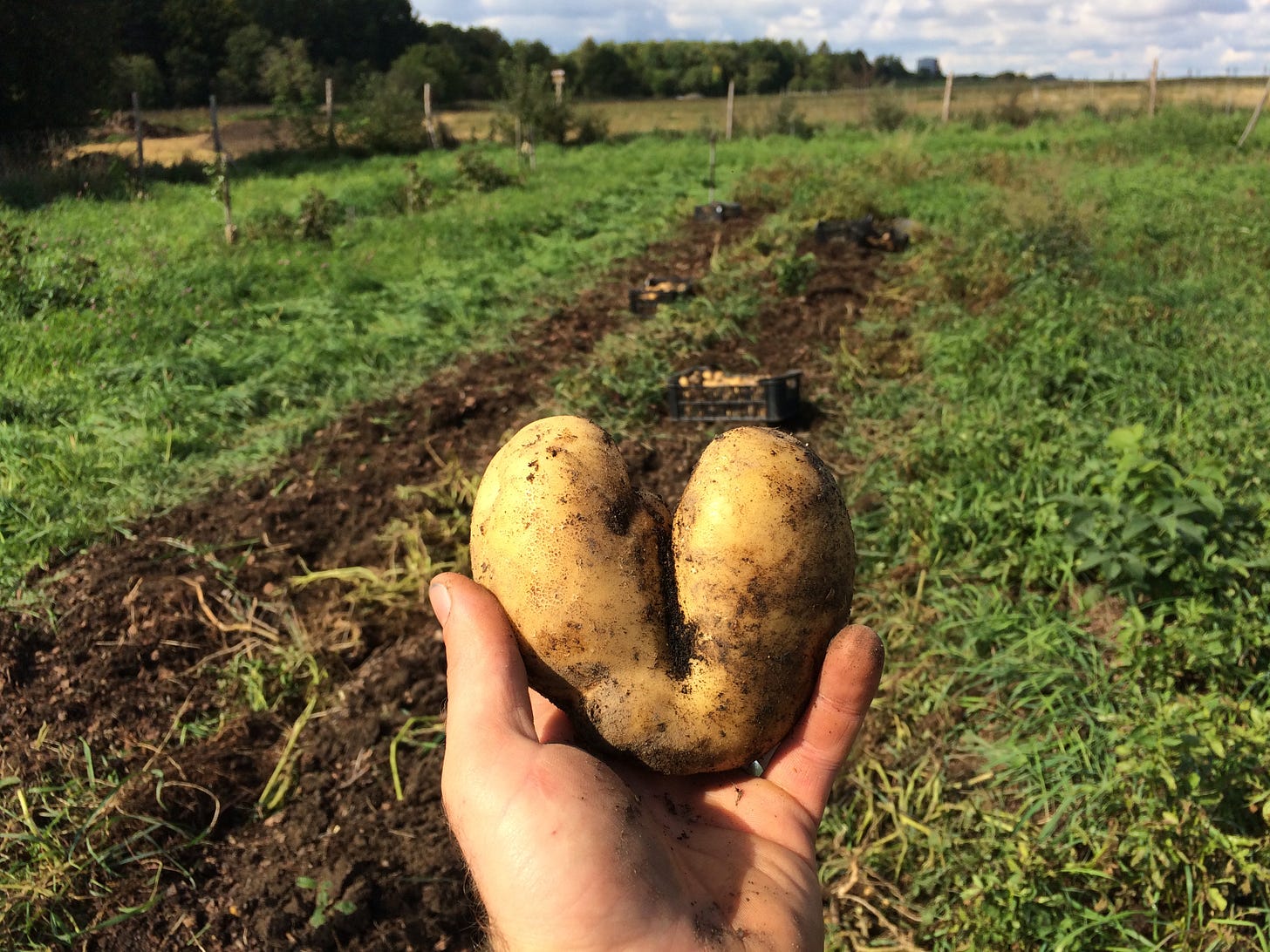
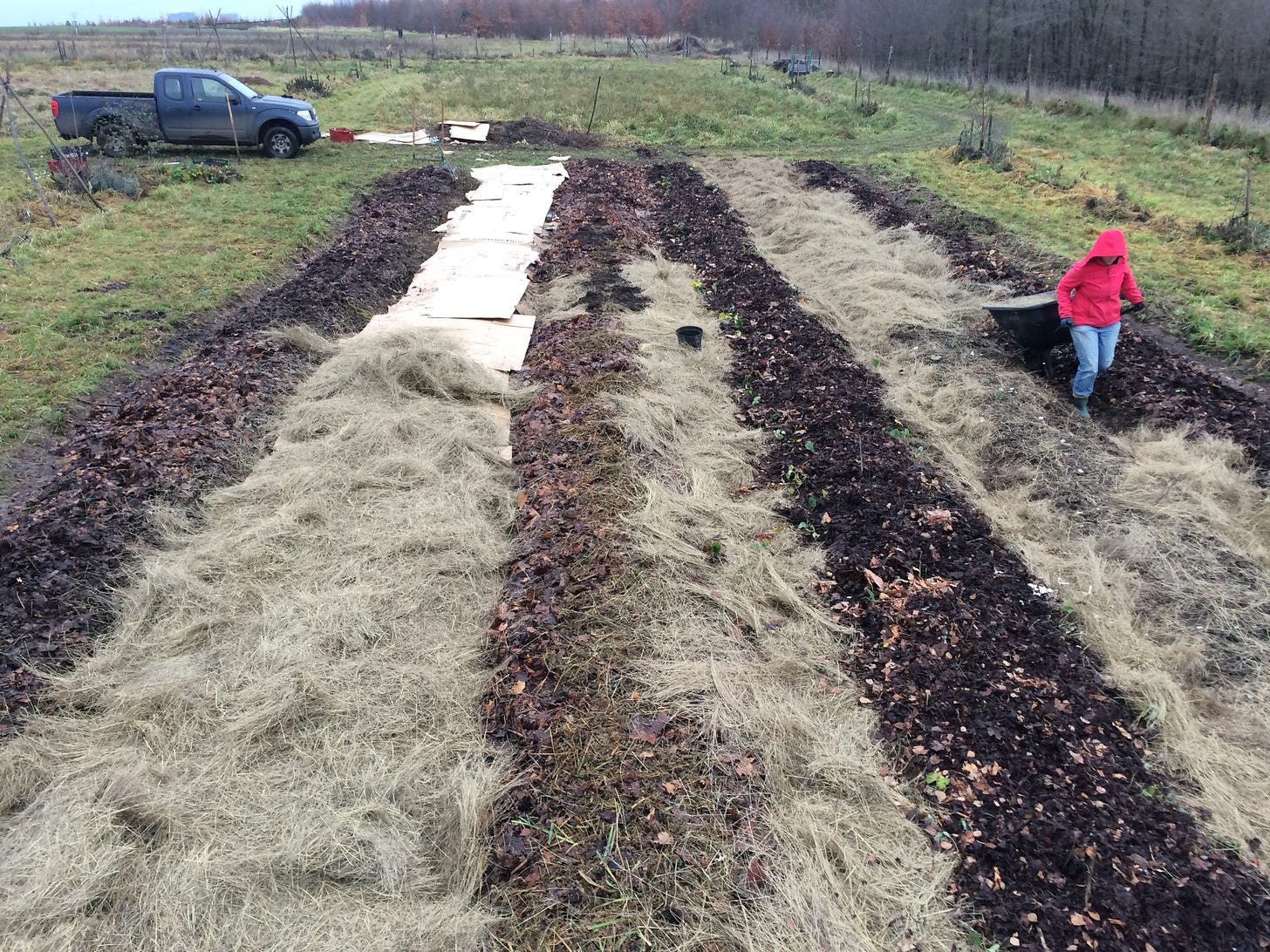
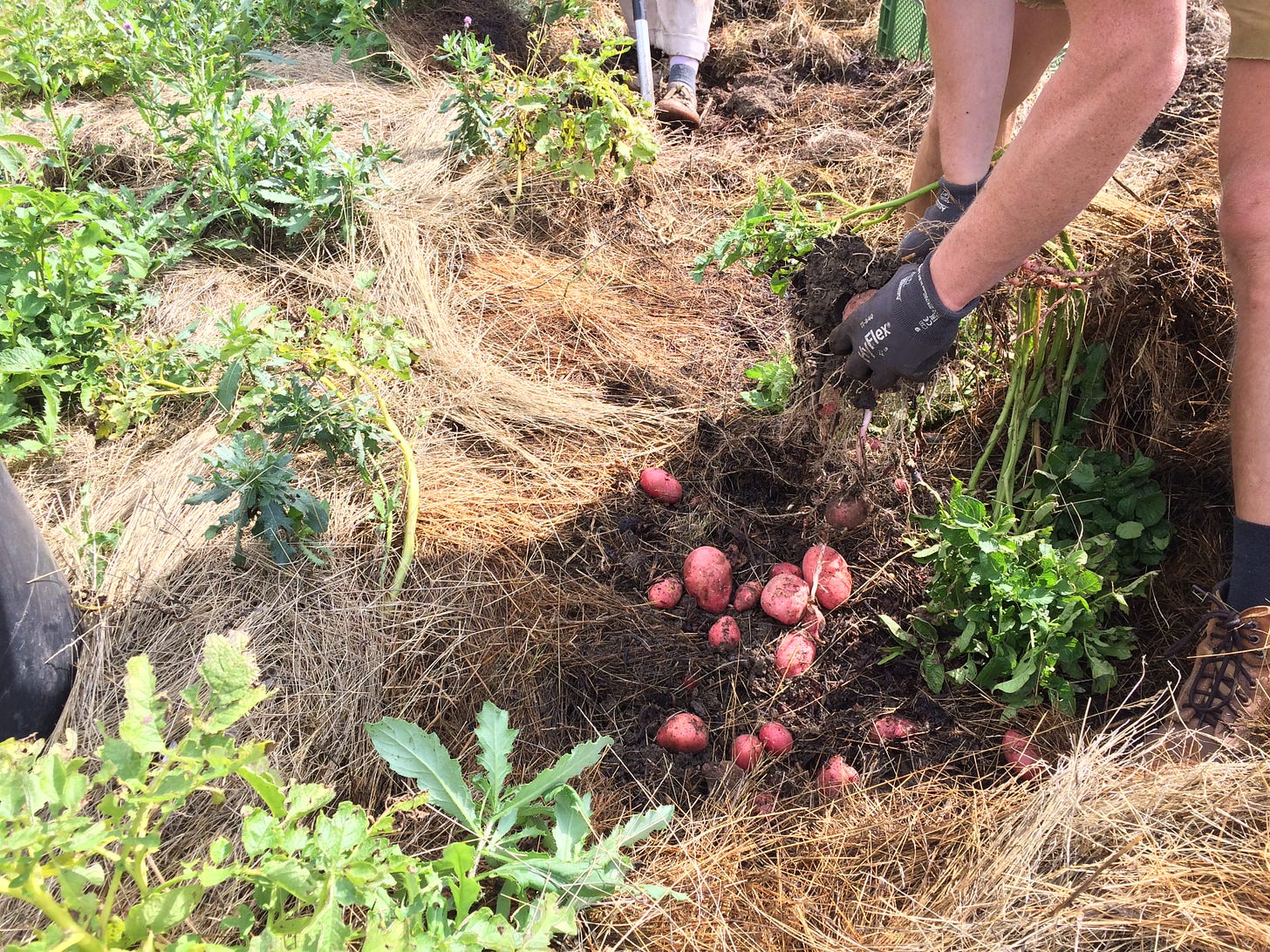
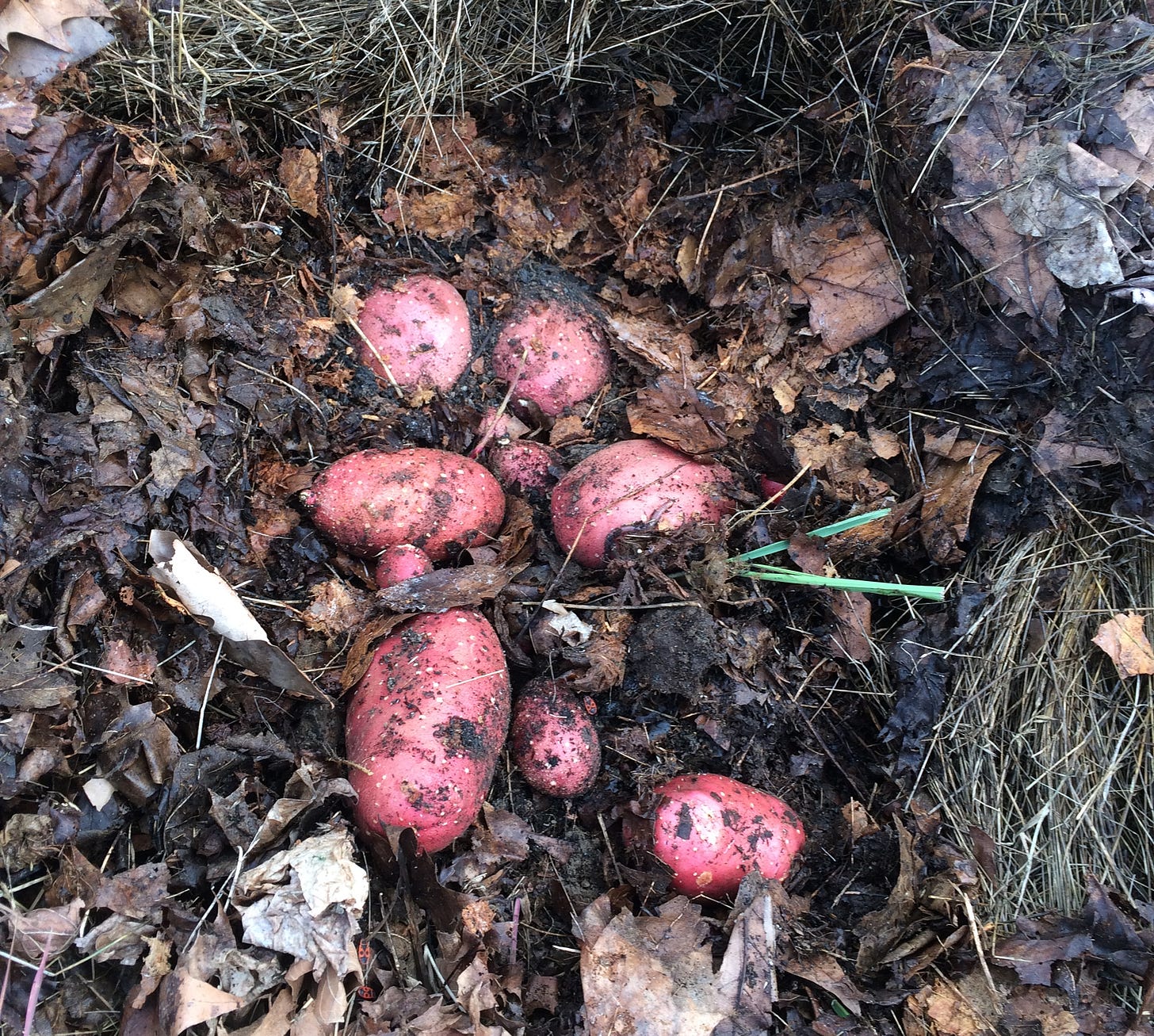
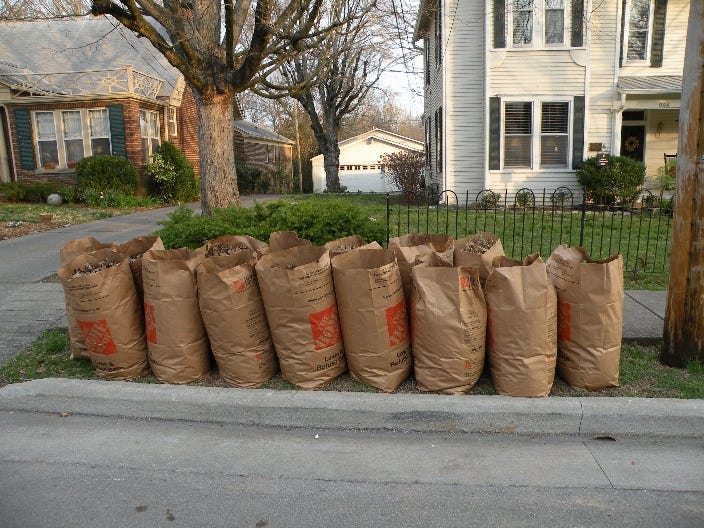
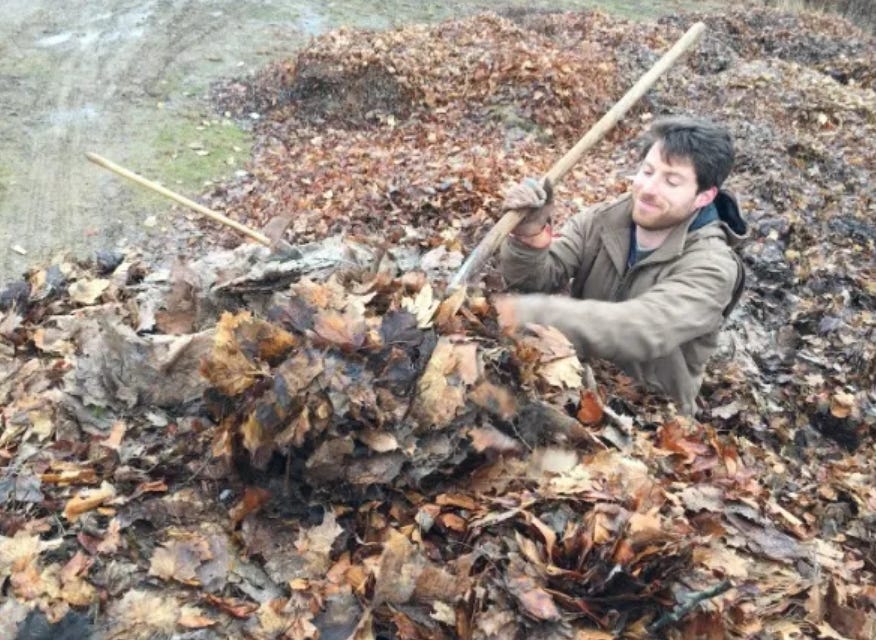
Insanity = raking up leaves from the lawn in Fall, burning fossil fuel to transport them to a landfill, and applying chemical fertilizer/insecticide to the lawn in Spring. Just leave the damn leaves! 🍁
I cannot tell you how sad I feel when I see people raking or worse) burning leaves! I have a farm in central Illinois. In the fall I drive through the alleys of the local small towns and collect their bagged leaves. For leaf mulch and also for my hen house. I use them for bedding (later it makes amazing compost) - the hens love it when I line their laying boxes in leaves too.
Thank you for a great article!